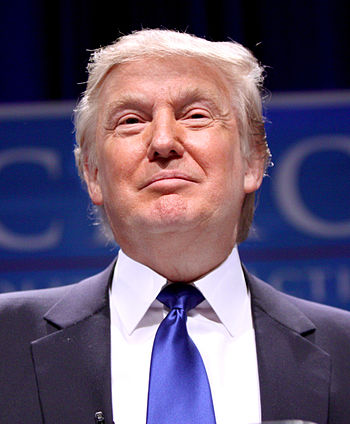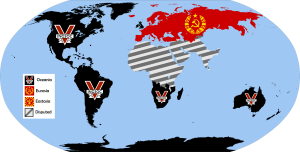trump: noun; deceit, fraud, trickery; of no value; rubbish; nonsense.
The Second Edition of Webster’s New International Edition of the English Language: Unabridged appeared in 1934; contained more than 300,000 entries, and took decades to assemble. Now a collector’s item, the book was bound in pebbled leather, filled with fragile onion-skin pages, and weighed about 8 pounds. The Third Edition, published in 1961, was far less elegant but even heavier, with ordinary cloth covers, sturdier paper, and 100,000 more words. The editors were scholars, not seers, and had every reason to consider it the ultimate dictionary. They couldn’t have envisioned the technological revolution; they didn’t know like would become an all-purpose part of speech, or that just fifty-five years later we’d need only six dozen of those words, because we’d be communicating in unforeseeable ways. Since then, daily language has been so drastically over-abridged that we’re able to get definitions and spelling from the three inch front pocket of toothpick jeans.
Those massive tomes, once part of every library, are now verbal algae, primitive precursors of contemporary life. Even so, there are a few terms in that vast vocabulary that should never have been tagged obsolete and abandoned. They’re uniquely particular words that must be rescued, revived, enjoyed and employed by us all. In a peculiarly American accident, a grand old English word and its derivatives were ruined by the sudden and seemingly trivial change of a small letter to a capital one.
With any luck at all, the damaged noun will be returned in lower case to wordsmiths before Thanksgiving 2016. Until then, we should call the currently embarrassing term the “T” word, and refer to it that way in the media and in daily conversation. There’s no reason to repeat the erroneous version ever again before the holiday. That will be the last day we can send the temporary capital letter back to the lower case where it has always belonged. After that, the return envelope will no longer be pre-paid.
In fact, unnecessary use of the improperly capitalized term has already caused havoc at bridge tournaments worldwide. Ignoring the hands they have been dealt, a majority of players are rejecting the hearts, spades, diamonds and clubs in order to bid something that is not actually a proper suit at all. At an international tournament in the UK, the scheduled event was disturbed by pickets demanding that competitors reject all but the sole non-suit bid on the signs they carried. Similar demonstrations have turned up in Los Angeles, where many potential players refuse to cross the picket lines; in Munich, Bordeaux, and Manchester. Though these protests are generally orderly, the British ones tend to become raucous and the presence of constables is suggested.
Luckily for bridge aficionados and others who stopped playing cards when their toddlers outgrew Go Fish, Webster and the erudite gentlemen who created the OED have left us an assortment of excellent options. Those synonyms are especially welcome to journalists, TV commentators, and radio talk hosts, many of whom recognize the error and regret sensationalizing it. There have been some apologies and many expressions of regret from media personalities.
The Oxford English Dictionary, as always, is extensively detailed, offering not just helpful definitions, but also examples showing how the banned word and its derivatives can be used in an inoffensive sentence.
That trumpery hope which lets us delude ourselves.
Tables piled with all sorts of trumpery.
Bartlett’s Familiar Quotations offers two examples by highly esteemed authors. A Graham Greene novel provides a third.
Farewell the neighing steed, and the shrill trump (Shakespeare; Othello)
Tell the truth or trump –but get the trick (Mark Twain; Pudd’nhead Wilson)
Beggars used to come here to sell trumpery wooden carvings to guests swimming in the pool. (Graham Greene; The Comedians)
Let’s have one last nostalgic look at the “T” word as it was defined until an unfortunate and potentially disastrous mistake made it the word that cannot speak its name.
trumpery: noun; deceptively showy; trashy; worthless
trump: noun; deceit, fraud, trickery; of no value; rubbish; nonsense.
trumper: noun; a deceiver.
trump: transitive verb: to cheat or fool.






Be First to Comment